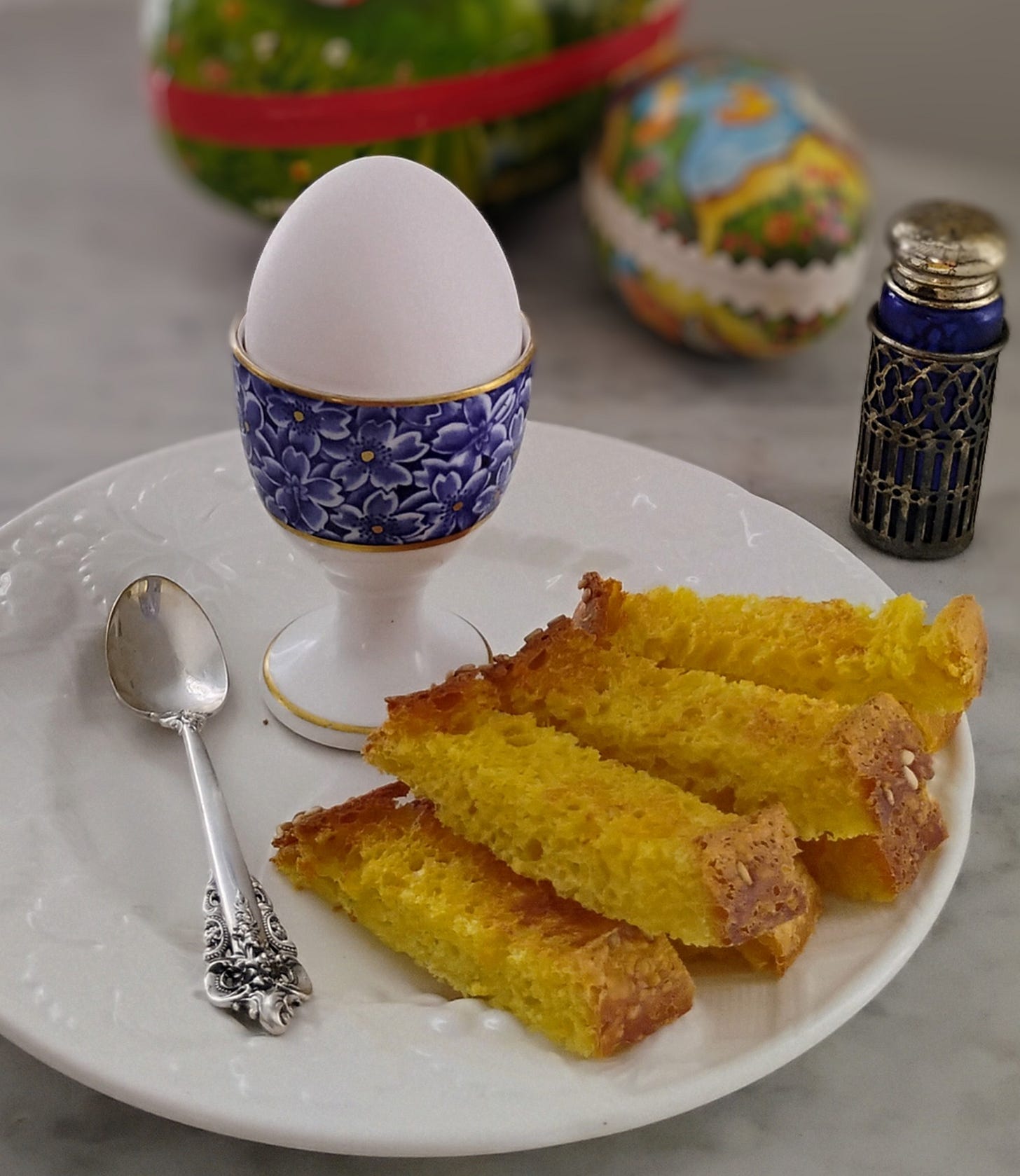Scattered throughout our county in New Jersey, right along the side of the road, you can find many spots with a homemade “Eggs for Sale” sign, a cooler, and a lock box to collect your cash. In New Jersey, some towns may require that you have a minimum of land or that your chickens are not free-range, but anyone can legally raise chickens and sell eggs. One requirement is that your packaging include your name, address, phone number, and sell-by-date, usually 30 days after the eggs are laid. The state has yet to have an outbreak of bird flu among domesticated birds, the culprit behind the rise in egg prices. However, wild birds have succumbed to the bird flu, and this has resulted in the temporary closure of Merrill Creek Reservoir, where my husband and I hike, and I occasionally go to paint. A ranger has been stationed at the entrance to keep the public out, but I have read that it may re-open in early April. Merrill Creek is home to a sizable population of bald eagles, but I am unsure of the birds that have been affected.
Now that spring is here, and Passover and Easter are approaching, the cost of a dozen eggs may seem like even more of an affront to our pocketbooks. I don’t believe I had ever eaten a soft-boiled egg from a delicate, porcelain egg cup until my eyes landed on the two Tiffany egg cups high up in a cupboard. They had belonged to my mother, and I don’t remember them ever being used. We grew up eating our eggs either scrambled or overeasy. My mother and I probably kept them for the same reason, because they are pretty. Serving an egg in an elegant cup feels like an appropriate presentation commensurate with their current price! I even have small demitasse spoons in my flatware set to accompany the soft-boiled eggs.
Consuming soft-boiled eggs for breakfast appears to be more of a European tradition than an American one. King Louis XV of France is said to have challenged guests at his table to cleanly remove the top of the egg with one whack of the knife. The British cut their toast into strips, referred to as soldiers all lined up, for dipping into the soft yolk. During the Victorian era, when buying matching sets of dishes became common, egg cups were often part of the package. Due to their diminutive size, they can be a popular item to collect and put on display. The hobby of collecting egg cups is called pocillovy; combining the Latin words for little cup and egg. The appeal of collecting egg cups is well illustrated on this blog, which is devoted to their diversity and whimsical appeal. Special devices can be purchased to aid in removing the top of the egg, and knitted or crocheted cozies can keep the egg warm between the kitchen and the table.
Some recipes for soft-boiled eggs call for the eggs to be at room temperature. My husband told me recently, the first time I had ever heard this particular anecdote, that his father would warm eggs in the pockets of his trousers. That would certainly be risky for me as I would surely forget and recklessly plunge my hands into my pockets. My first attempt with the soft-boiled eggs did not turn out well, as the yolks were too well done. After that, I followed the instructions at The Kitchn.
One Soft-Boiled Egg
Ingredients
One large egg
salt and pepper
Directions
Show Images
Fill a small but deep-sided saucepan with about four inches of water. Bring the water to a boil, then lower the heat so that the water simmers gently. Lower in the egg with a large spoon. Start the timer for 6 minutes. After six minutes remove the egg and run it under a cold tap for 15 seconds. Place in an egg cup and slice off the top third. Season with salt and pepper.
How do you like your eggs?
Thank you for reading, liking, commenting, and sharing!
Vicki






As always, a wonderful post with super photos, painting and stories from your life, Vicki!
I got a little thrill learning that there's actually a name for those who collect egg cups. I have exactly two that I've picked up on our travels, along with some pretty painted eggs that I like to put inside them. That's probably not enough to qualify me as a "pocillovist," but I'm still hunting for more!
You're right that they're quite European. My Scottish mother used to serve soft-boiled eggs in little silver pewter egg cups, and my German-born father took great pleasure in cleanly sheering off the tops with a single whack of his knife and then digging out the contents with a small spoon. Not me. I can't eat an egg that's the slightest bit runny. My favorites are the slightly jammy hardboiled eggs you get at Japanese 7-Elevens. They're already seasoned perfectly and utterly delicious.
I’ve saved two old Beatrice Potter egg cups from my Mother, and usually just use for an Easter decoration. Thank you for writing and for the remembrance of elegance!